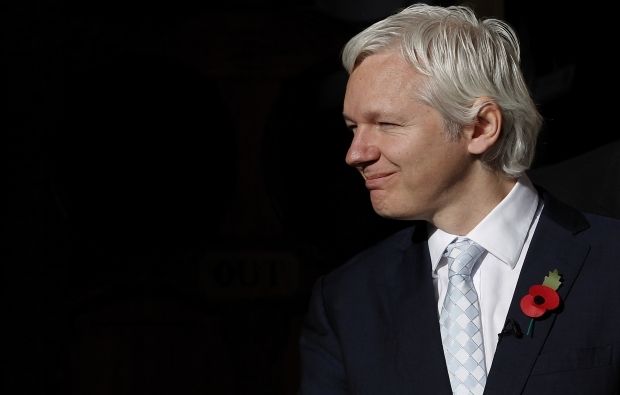
In the first few years, WikiLeaks followed a community approach: everyone could upload to the portal and edit leaked documents; The whole team decided which material was to be published -- that's how Harvard professor Jonathan Zittrain described the "first phase" of Wikileaks, NZZ reports.
In 2010 Wikileaks triggered an earthquake for the first time: In April, the platform published the so-called "Collateral Murder" video, which shows how American soldiers kill eighteen civilians during a helicopter attack on Baghdad. In contrast to previous contributions, Wikileaks was no longer limited to publishing the material, but also made a political statement with the heavily edited footage. Other confidential documents on American military interventions in Afghanistan and Iraq followed.
Read alsoWikiLeaks publishes massive trove of CIA spying files - The IndependentEmbarrassing for the Washington government was the publication of diplomatic dispatches, from which the public learned that Switzerland is a "frustrating Alpine democracy" in the eyes of the Americans. The revelations burdened the relationship with many nations. Wikileaks also collaborated for the first time with various media houses, including Der Spiegel and The Guardian, to evaluate and publish the hundreds of thousands of stolen documents. The informant was Bradley Manning, who was convicted for treason and sentenced to 35 years in prison in 2013. President Barack Obama, however, pardoned him in January.
Wikileaks, which now has 100 employees around the world, seems to have abandoned its original claim in the past few years, primarily to create transparency. Instead, Assange appears to be quite feuding against the American government.
Read alsoU.S. obtained evidence after election that Russia leaked emails: officials – ReutersFor some time, increasingly obvious has become Assange's striking proximity to Russia, the country that in no way can meet Wikileaks's former claim for transparency. When several American financial institutions blocked donations to the unveiling platform in 2010, Russia's English-speaking state TV channel Russia Today hired him to make twelve TV shows, according to The New York Times. Since then, Assange has repeatedly criticized America's hegemony on Russian television. He is also said to have proposed the whistleblower Edward Snowden to seek asylum in Moscow when he fled the U.S. in 2013.
During the American presidential election campaign in 2016, Assange's platform published on almost a daily basis the documents, which were obviously aiming at hurting Clinton campaign, including speeches she had made before big banks, internal communication with the Democratic Party and her electoral campaign manager. It was Russians who were essentially behind that smear campaign driven by Wikileaks, and both U.S. intelligence community and private IT security companies agree with that assumption. Assange, however, has denied allegations. It is difficult to determine, how heavily Assange contributed to Clinton's defeat. In any case, his droplet-like revelations have resulted in persistently negative headlines just before the election.


